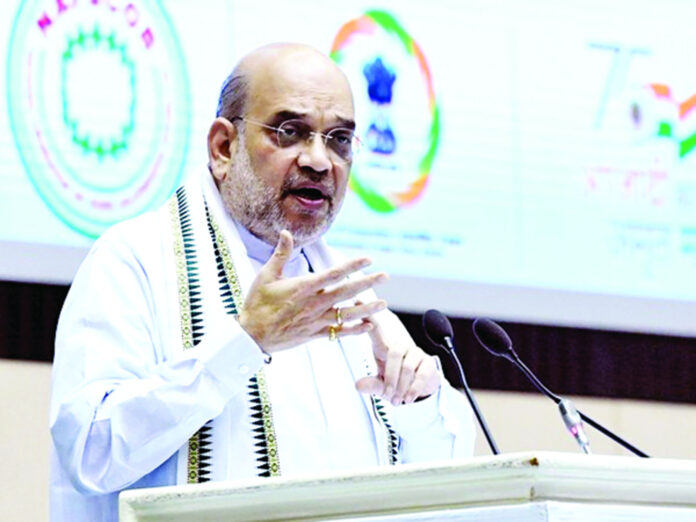DOGRA HERALD BUREAU
NEW DELHI, jULY 1
Union Home Minister Amit Shah said on Monday that justice would be delivered up to the level of the Supreme Court in all cases within three years of the registration of an FIR under the new criminal laws.
Addressing a press conference after the new criminal laws were implemented, Shah expressed hope of a reduction of crime in future as 90 per cent conviction was expected under the new laws.
The Bharatiya Nyaya Sanhita (BNS), Bharatiya Nagarik Suraksha Sanhita (BNSS) and the Bharatiya Sakshya Adhiniyam (BSA) came into effect on Monday. The new laws replaced the British-era Indian Penal Code, Code of Criminal Procedure and the Indian Evidence Act, respectively.
“Justice can be received up to the level of the Supreme Court within three years of the registration of the FIR,” he said.
The home minister said that with the implementation of the three criminal laws, India would have the most modern criminal justice system in the world.
“The new laws brought in a modern justice system, incorporating provisions such as Zero FIR, online registration of police complaints, summonses through electronic modes such as SMS and mandatory videography of crime scenes for all heinous crimes,” he said.
Shah said the first case under the new laws was about a motorcycle theft registered in Madhya Pradesh’s Gwalior at 10 minutes past midnight.
He also said the police dismissed the case filed against a street vendor for selling water and tobacco products from a cart that allegedly obstructed a public way in central Delhi’s Kamala Market after an investigation.
The new laws would give priority to providing justice, unlike the colonial-era laws that gave primacy to penal action, and made reporting of crimes even easier by recognising e-FIR, Zero FIR and electronic or digital evidence.
The home minister said the judicial process would now be time bound and the new laws set time limits for the judicial system, ending long delays.
He said the new statutes were made more sensitive by adding a chapter on crimes against children and women and the inquiry report in such cases were to be filed within seven days.
Shah said according to the new laws, judgment in criminal cases had to come within 45 days of completion of trial and charges must be framed within 60 days of first hearing.
The new laws promote a justice-centric approach by providing community service for minor crimes, he said.
The home minister said organised crime, acts of terrorism and mob lynching had been defined, sedition was replaced with treason and video recording of all search and seizures made mandatory.
He said a new chapter on crimes against women and children was added, buying and selling of any child made a heinous crime and a provision for death sentence or life imprisonment for gang rape of a minor included.
A new provision has been added in cases of having physical relations after giving false promise of marriage and statement of rape victims will be recorded by a woman police officer in presence of her guardian, he said.
Officials said under the new laws, overlapping sections were merged and simplified, with only 358 sections against 511 in the Indian Penal Code.
For example, definitions scattered from sections 6 to 52 have been brought under one section.
Eighteen sections already stand repealed and four relating to weights and measures are covered under the Legal Metrology Act, 2009.
Instances of false promise of marriage, gang rape of minors, mob lynching and chain snatching, among others, are reported but the Indian Penal Code did not have specific provisions for dealing with such incidents.
These have been addressed in the BNS, the officials said.
A new provision has been made for cases such as abandonment of women after making sexual relations on the false promise of marriage.
The three laws were based on justice, transparency and fairness, the officials said.
Under the new laws, a person can now report incidents by electronic communication, without the need to physically visit a police station.
This allows for easier and quicker reporting, facilitating prompt action by the police.
With the introduction of Zero FIR, a person can file a First Information Report (FIR) at any police station, regardless of jurisdiction.



























